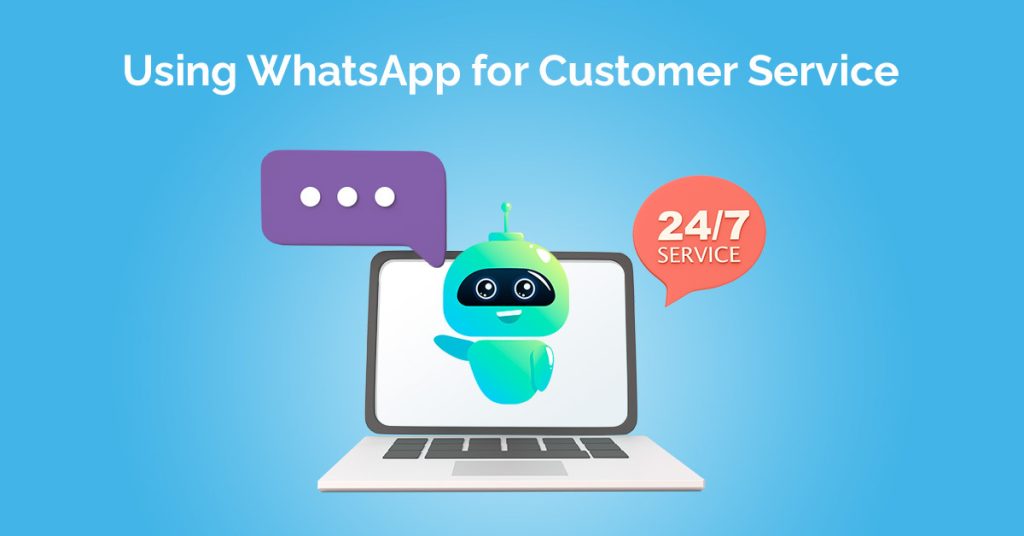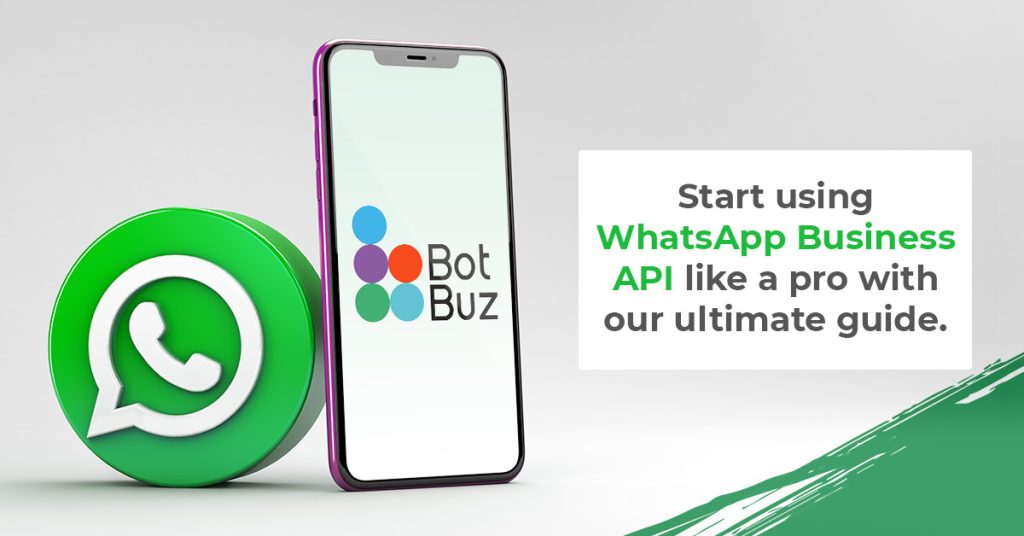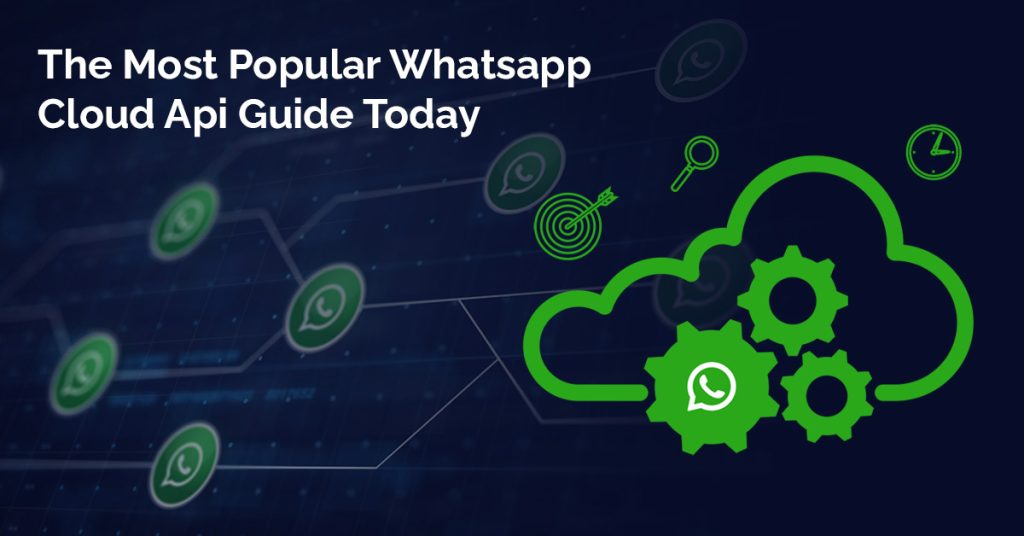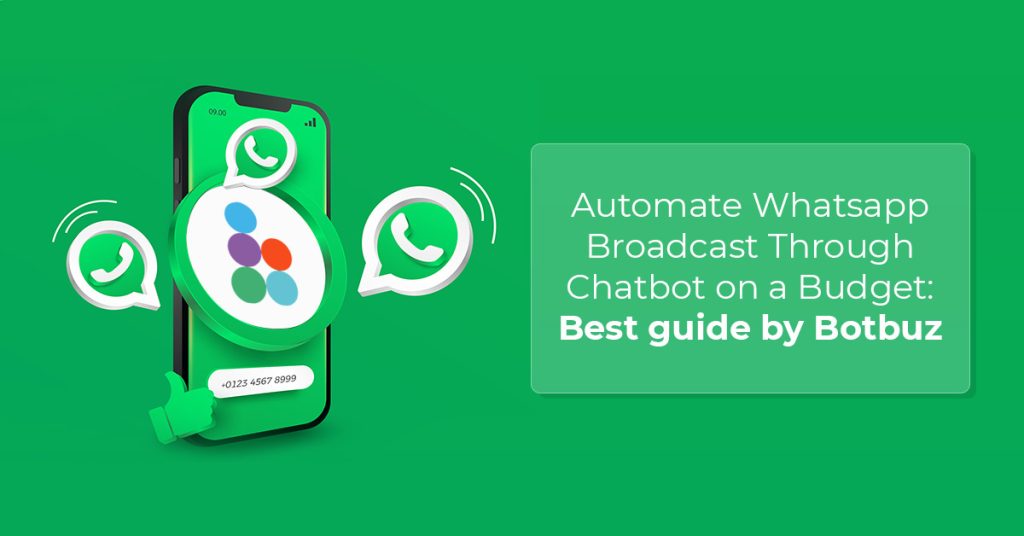- The Rise of WhatsApp in Customer Service:
- Why is WhatsApp Ideal for Customer Support?
- The Power of Real-Time Communication :
- Instant Messaging for Swift Resolution:
- Leveraging Multimedia for Clearer Communication:
- Building a Knowledge Base:
- FAQ's and Information Resources:
- Creating WhatsApp Status Updates for Service Notifications:
- Effective Customer Enagagement Strategies:
- Measuring and Imrpoving Performance:
- Botbuz WhatsApp Chatbot for Excellent Cusotmer Service:
The Rise of WhatsApp in Customer Service :
WhatsApp is a popular messaging app with over 2 billion active users worldwide. It is known for its ease of use, affordability, and security. In recent years, WhatsApp has become increasingly popular as a customer service tool. The use of WhatsApp for customer service is on the rise. A recent surveyn found that 68% of businesses plan to use WhatsApp for customer service in 2023. This is up from 55% in 2022.
There are a number of reasons for WhatsApp’s rise in customer service. First, it is a very convenient way for customers to contact businesses. Customers can use WhatsApp from anywhere in the world and they do not need to download a separate app or create a new account.
Second, WhatsApp is a very personal way to communicate. Customers can send text messages, images and videos to businesses and they can expect to receive a prompt response.
Third, WhatsApp is a very secure way to communicate. WhatsApp messages are end-to-end encrypted, which means that only the sender and recipient can read them. This is important for customers who are concerned about the security of their personal information.
Why Is WhatsApp Ideal for Customer Support ?
- It is a global platform. WhatsApp is available in over 180 countries and territories, making it easy for businesses to provide customer support to customers all over the world.
- It is real-time. WhatsApp messages are delivered in real time, so businesses can respond to customer inquiries quickly and efficiently.
- It is conversational. WhatsApp conversations are more conversational than traditional customer support channels, such as email or phone. This can help businesses to build stronger relationships with their customers.
- It is affordable. WhatsApp is free to use for both businesses and customers, making it a cost-effective customer support solution.
The Power of Real-Time Communication :
Real-time communication (RTC) is the ability to communicate with another person or group of people in real time, without any delay. RTC can be used for a variety of purposes. It includes customer service, team collaboration and education.
RTC is a powerful tool for customer service because it allows businesses to resolve customer issues quickly and efficiently. When a customer has a problem, they can contact a business representative via RTC and get help immediately. This can help to improve customer satisfaction and reduce customer churn.
Instant Messaging for Swift Issue Resolution :
Instant messaging (IM) is a popular form of RTC that allows users to send and receive text messages in real time. IM is a great way for businesses to provide customer support because it is convenient and easy to use. Customers can contact a business representative via IM from anywhere in the world, as long as they have an internet connection.
IM is also a great way to resolve customer issues quickly and efficiently. A business representative can use IM to ask the customer questions about their problem and then provide them with a solution. IM can also be used to share files and images, which can help to clarify the customer’s problem and make it easier to resolve.
Leveraging Multimedia for Clearer Communication :
Many RTC platforms now support multimedia communication. It supports video calling and screen sharing. Multimedia communication can be especially helpful for customer service. It allows businesses to provide more personalized and engaging support.
For example, a business representative can use video calling to see the customer’s screen & help them to resolve a technical issue. A business representative can also use screen sharing to walk the customer through a new product or service.
Building a Knowledge Base :
A knowledge base is a collection of information about your products or services that can be used by customers and employees to find answers to their questions. A knowledge base can be used to improve customer service by providing customers with the information they need to resolve their issues quickly and efficiently.
There are two main types of knowledge bases:
Internal knowledge bases : Internal knowledge bases are for employees which provide them with information about products, services, policies & procedures.
External knowledge bases : External knowledge bases are for customers & provides them with information about products, services, support & troubleshooting.
FAQs and Information Resources :
One of the best ways to build a knowledge base is to start by creating a list of frequently asked questions (FAQs). FAQs are common questions that customers ask about your products or services. You can create a list of FAQs by collecting data from customer support tickets, social media posts, and other sources.
Once you have created a list of FAQs, you can start to develop information resources to answer them. Information resources can include articles, tutorials, videos, and other types of content. You can create information resources yourself or you can hire someone to create them for you.
Creating WhatsApp Status Updates for Service Notifications:
You can use WhatsApp status updates to provide customers with service notifications. Service notifications include information about new products & services, upcoming maintenance & service outages.
To create a WhatsApp status update for a service notification, type the notification message into the status update field & then tap the send button. You can also add images, videos & links to your status updates.
Effective Customer Engagement Strategies :
Effective customer engagement strategies are essential for building strong relationships with customers. It helps in driving business growth.
Personalization and customer segmentation :
Personalization is key to effective customer engagement. WhatsApp allows you to personalize your interactions with customers. It uses their name, understanding their purchase history & tracks their interactions with your brand. You can also use customer segmentation to group customers based on their interests & needs & then send them targeted messages.
For example, you could send a message to customers who have abandoned their shopping carts offering them a discount to complete their purchase. Or, you could send a message to customers who have recently purchased a new product offering them tips on how to use it.
Utilizing WhatsApp groups for communities and updates :
WhatsApp groups are a great way to create communities & provide customers with updates. You can create a group for customers who have purchased a specific product or who are interested in a particular topic. You can then use the group to share news, tips, and updates with customers.
For example, you could create a group for customers who have purchased your new product. You could then use the group to share customer testimonials, product updates, and tips on how to use the product.
Automation is a key way to improve efficiency in customer service. By automating basic tasks, such as answering frequently asked questions and routing customer inquiries to the right team, you can free up your customer service representatives to focus on more complex issues.
Implementing chatbots for basic inquiries :
Chatbots are computer programs that can simulate conversation with humans. Chatbots can be used to answer basic customer questions, such as “What are your shipping rates?” or “How do I return an item?”
By using chatbots to answer basic customer questions, you can reduce the workload on your customer service representatives. It improves customer experience. Chatbots also provides 24/7 support. It is important for customers who need help outside of regular business hours.
Integrating WhatsApp with CRM systems :
Customer relationship management (CRM) systems are used to track and manage customer interactions. By integrating WhatsApp with your CRM system, you can get a complete view of each customer’s interactions with your business.
This information can be used to personalize customer interactions. Thus helping to provide better customer support. For example, you could use the information to send customers targeted messages about products or services that they are interested in.
Measuring and Improving Performance :
Tracking customer interactions :
The first step is to track your customer interactions on WhatsApp. This includes tracking metrics such as the number of messages received, the average response time, and the customer satisfaction rate. You can use a variety of tools to track your customer interactions, such as WhatsApp Business Insights or a third-party customer service platform.
Once you have a good understanding of your customer interactions, you can start to identify areas where you can improve. For example, if you see that your average response time is too long, you can take steps to reduce it, such as hiring more customer service representatives or using chatbots to answer basic questions.
Gathering feedback and using it to enhance service :
It is an important way to measure & improve customer service performance on WhatsApp is to gather feedback from your customers. You can do this by sending surveys or by asking customers for feedback after they have interacted with your customer service team.
Once you have gathered feedback from your customers, you can use it to identify areas where you can improve your service. For example, if you see that customers are frequently complaining about long wait times, you can take steps to address this issue, such as increasing the number of customer service representatives available.
Using Botbuz WhatsApp Chatbot to provide excellent Customer Service:
- Use chatbots to answer common questions and provide support. Chatbots can be used to answer common customer questions, such as “What are your shipping rates?” or “How do I return an item?” This can free up your customer service representatives to focus on more complex issues.
- Personalize your interactions with customers. Botbuz WhatsApp Chat Bot allows you to personalize your interactions with customers by using their name, tracking their purchase history, and understanding their needs. This can help you build stronger relationships with customers and provide them with a more relevant experience.
- Use multimedia to engage customers. Botbuz WhatsApp Chat Bot allows you to send and receive multimedia messages, such as images, videos, and documents. This can help you engage customers more effectively and provide them with a more visual experience.
- Provide 24/7 support. Botbuz WhatsApp Chat Bot can provide 24/7 support to your customers. This is important for customers who need help outside of regular business hours.
- Track and improve your performance. Botbuz WhatsApp Chat Bot provides detailed analytics that can help you track your performance and identify areas where you can improve.
WhatsApp is a powerful tool for customer service. It is convenient, affordable, and effective. By using WhatsApp, businesses can provide their customers with the support they need, when they need it.
The future of WhatsApp in customer service is bright. WhatsApp is adding new features. Thus, making it easier for businesses to provide customer support. For example, WhatsApp recently launched a new feature called WhatsApp Business API. It allows businesses to integrate WhatsApp with their CRM systems. This makes it easier for businesses to track customer interactions and provide better customer support.
Key takeaways for exceptional customer support on WhatsApp :
- Be responsive. Respond to customer inquiries promptly and courteously. Aim to respond within 24 hours, or even sooner.
- Be helpful. Provide customers with the information and support they need. Go the extra mile to resolve their issues.
- Be informative. Share valuable content with customers, such as product updates, tips, and industry news. Use WhatsApp to educate and engage your customers.
- Be engaging. Use emojis, images, and videos to make your messages more visually appealing and engaging.
- Be respectful. Respect customer privacy and avoid sending unsolicited messages.




